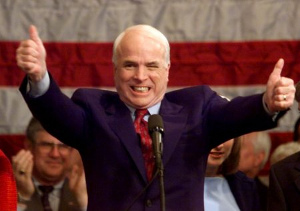
The repeal of Don’t Ask Don’t Tell was shot down in the Senate yesterday. Republicans stood unanimously, with the aid of two Democrats, against allowing the defense authorization bill to come to a vote on the floor while it contained the proposed repeal of the military policy.
The repeal of DADT was part of Obama’s 2008 campaign platform, and is supported by both Robert M. Gates, the Defense secretary, and Adm. Michael G. Mullen, chairman of the Joint Chiefs of Staff as well as 60% of the American people. The policy was initially created to preserve morale among troops who wouldn’t be comfortable with gays in their ranks. Yet is this really still an issue, and does it even matter to the Senate if it is?
On the one hand, the pentagon has yet to complete its study on the impact of lifting DADT. They are currently scheduled to release that study before the end of the year. In the mean time, it seems the real issue here may simply be age.
A Pew Research Study shows a strong correlation between age and views of DADT. The 2006 study showed 72% of 18-29 year olds supported gays serving openly in the military. Meanwhile, only 47% of those over 65 did. It’s instructive to note the majority of those in military service fall into the younger group, while the majority of those in the Senate fall into the older group.
Further, conservatives are an older demographic than liberals. This means that for conservative Senators, their votes are largely dependent on those least likely to want DADT repealed, and most likely to not be currently serving in the military.
It seems that DADT has much more to do with preserving the morale of the conservative voting base than it does with preserving the morale of the troops.
